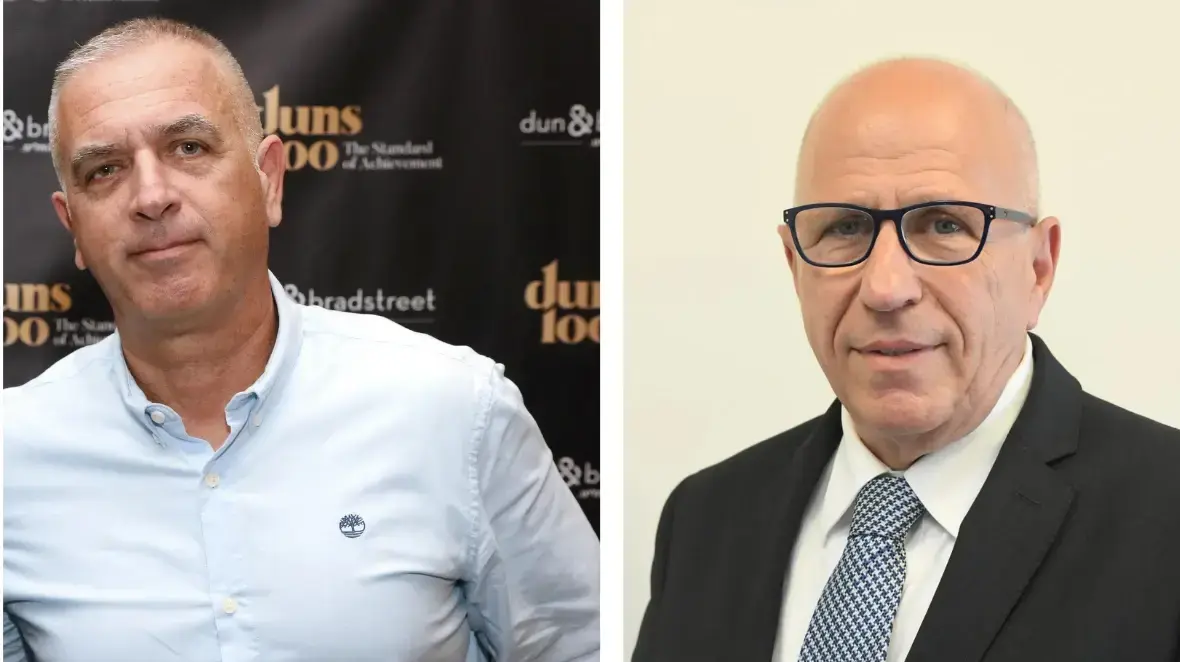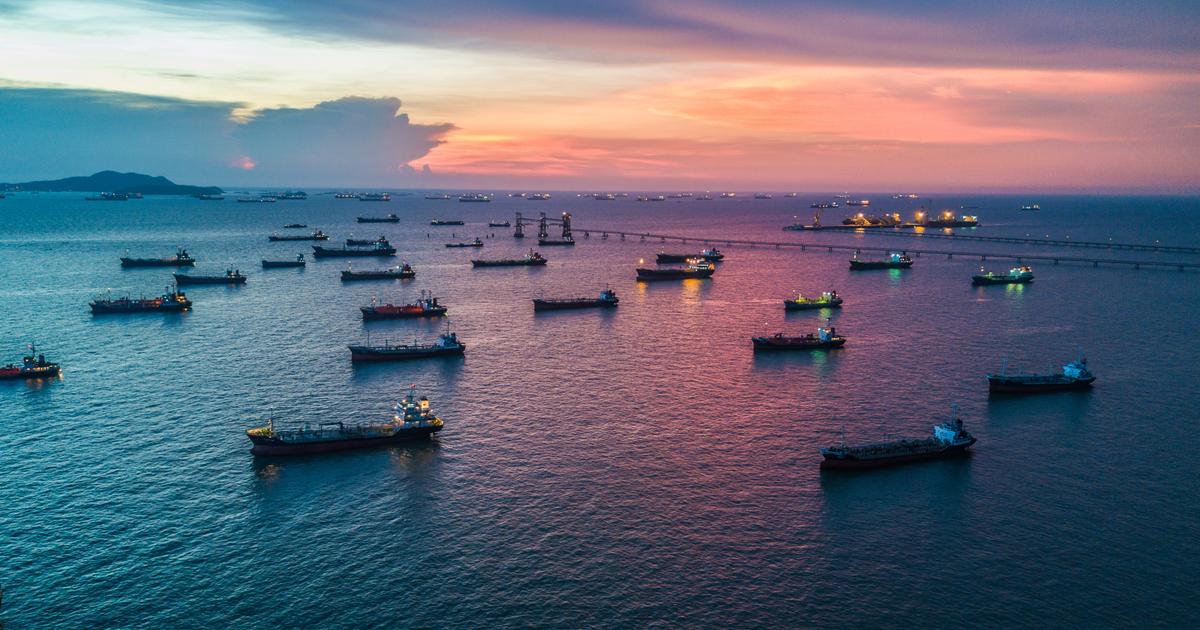The collapse of the USSR enriched the new Russians in the 1990s, the big winners in sharing out the country's immense wealth during the privatization process of national companies and resources.
The war in Ukraine now paves the way to divide the pie again among the most loyal circles of the Kremlin.
In the environment of the Russian president, Vladimir Putin, a surreptitious fight is being waged today for the business of some great fortunes that have shown their doubts about the military offensive.
After two decades of coexistence with Putin's system, the game board has radically changed for Russian magnates, who face the double clamp of smear campaigns by media affiliated with the government and the expropriation of their assets.
"The constant comments about the nationalization of the companies and the continuous pressure on the owners have placed them between the anvil and the hammer," says a source close to this circle of businessmen.
There are several cases.
Oleg Tinkov (Polisayevo, 54 years old) is the best known since he was forced to sell his bank at a bargain price in May after having harshly criticized the war.
This banker lived outside of Russia and was an independent figure, but the proximity to the Kremlin has not provided protection for other tycoons either.
More information
Latest live war news
Oleg Deripaska (Dzerzhinsk, 54 years old), founder of the world's largest aluminum metallurgical company, Rusal, stated in the summer that the war "is a colossal mistake" and now the press is crying out for the nationalization of his companies.
The notice came in September, when the authorities opened several processes to expropriate some 1,000 million euros in assets.
Putin summoned the day he launched the war to 37 heads of state companies and other private businesses to warn them that the crusade in Ukraine would take its toll and to take a photo with them.
Among others, the general director of Yandex, the Russian Google, attended the meeting.
Tigrán Judaverdián ended up resigning after being sanctioned by Europe and Yandex has fallen into the orbit of the Kremlin after being dismembered.
Ultranationalists against 'liberals'
Until now, the Russian president had been the key to the vault that kept the different factions close to power together, including the ultranationalists and those called pejoratively like
the liberals
—the businessmen more inclined to make money with the West and forget about confrontations—, but the war has shaken this house of cards.
"Given the rise of ultranationalists, it is possible that this is just the beginning," says the same source, who also laments that "Western sanctions have pushed Russian companies into the hands of those who have long wanted to devour them." .
Western punishment has also reached the billionaire Mikhail Fridman (Lvov, 58 years old), former owner of the Dia supermarkets through LetterOne, despite the fact that he published a letter in March denouncing that "this crisis is going to cost lives."
“I can only join those with a fervent desire for this bloodbath to stop,” said the also co-founder of Alfa Bank, who tried to avoid sanctions by transferring his stake in LetterOne to another low-profile and unrestricted oligarch, Andrei Kosogov.
Fridman, who recently offered 1 billion dollars to Ukraine, was arrested on December 1 at his London mansion for committing various alleged crimes, including money laundering, according to the Russian agency Tass.
Confronted with the media and justice
Deripaska made his fortune in the 1990s at just 25 years old thanks to the export of metals.
Unlike many other Russian tycoons, he has not been sanctioned by the US for his economic support of the Kremlin, but for extortion of other rivals, which forced him to cede full control of Rusal in 2018. In Russia, justice has fallen upon him after his summer statements.
This week, the court rejected Deripaska's appeal in one of the proceedings opened against him by the Prosecutor's Office for the
Marina case
, for which they have annulled the contracts he was developing in Sirius, a city on the Black Sea that enjoys a its own federal status and is a focus of business for the Russian elite, and its assets have been seized.
Specifically, apartment blocks, hotels and a yacht area.
The Prosecutor's Office filed the lawsuit on September 9 and the court handed down a sentence on September 15. According to the ruling, Deripaska's company did not remodel the port as planned.
The fast-paced trial came just after his outspoken criticism of the war.
Deripaska's great rival Vladimir Potanin, Russia's second-richest man, has seized on his position of weakness to suggest that Rusal should merge with his metals giant Nornickel in order to shield himself from possible sanctions.
Furthermore, the media campaign against these tycoons has intensified with the setbacks of the war.
"They are accused of treason, of participating in intrigues on behalf of foreign governments and of supporting artists who oppose the war," they denounce in the environment of these businessmen.
One of the main leaders of Russian state propaganda, the presenter Vladimir Soloviov, has criticized big business for not supporting the crusade in Ukraine;
and the veteran daily
Moskovski Komsomolets
, founded in 1919, published an analysis in November under the headline:
Russia needs the nationalization of strategic industries
.
“The country wonders why we have key companies in the hands of private traders who profit from the war.
The prices of uniforms increased by 300% after the announcement of the mobilization”, denounced the newspaper.
The ultranationalist businessman Konstantín Maloféyev has been accused by Ukraine of having financed the paramilitary groups that provoked the war in Donbas in 2014. His media
holding company
Tsargrad (Constantinople, in Slavic languages) has targeted
the liberals
.
“These anti-wars of Russia push us to peace with kyiv and the West at any cost (…) and betray the memory of those who have given their lives.
Who are they and what do they do? ”, Started one of the innumerable reports of him where he pointed out these businessmen.
This offensive against tycoons is also being waged on social networks.
The 10 main Russian oligarchs whose properties could be nationalized
, was published along with a list of the money they could bring to the country by the channel of the Telegram messaging application
Reports of the Novorosiya militias,
which has more than 297,000 subscribers.
The same outlet has accused the Russian oligarchs of being in cahoots with the Ukrainians.
“How many tanks did Deripaska buy?
How many Potanin helicopters?
To hell with his help to the country where these guys made their loot.
How many communications systems Abramóvich?” Asked the
Voice of Mordor
channel (182,000 followers).
While the great Russian fortunes try to adjust to the new scenario, the national economy is progressively transforming into a war economy.
“It is an unsustainable stagnation,” denounces a recent analysis by the
think tank
Re: Russia, sponsored by the foundation of Dmitri Zimin, the first businessman to take a Russian firm, the telecommunications company Vimpelcom, to the New York Stock Exchange.
According to a study by this organization, the Russian economy has managed to stop its total collapse for now "thanks to the increase in production for the needs of the war and the substitution of imports in a technological regression."
That is, by the replacement of goods and equipment by national analogues of worse quality and price.
According to the
think tank
, this stagnation is unsustainable in the long term because the consumer economy has plummeted and the industry is barely surviving due to the supplies it must provide for the massive mobilization decreed by Putin: clothing, transportation, and optical and electronic equipment "for to the destruction of the Ukrainian infrastructure”.
Follow all the international information on
and
, or in
our weekly newsletter
.
Subscribe to continue reading
Read without limits
Keep reading
I'm already a subscriber













